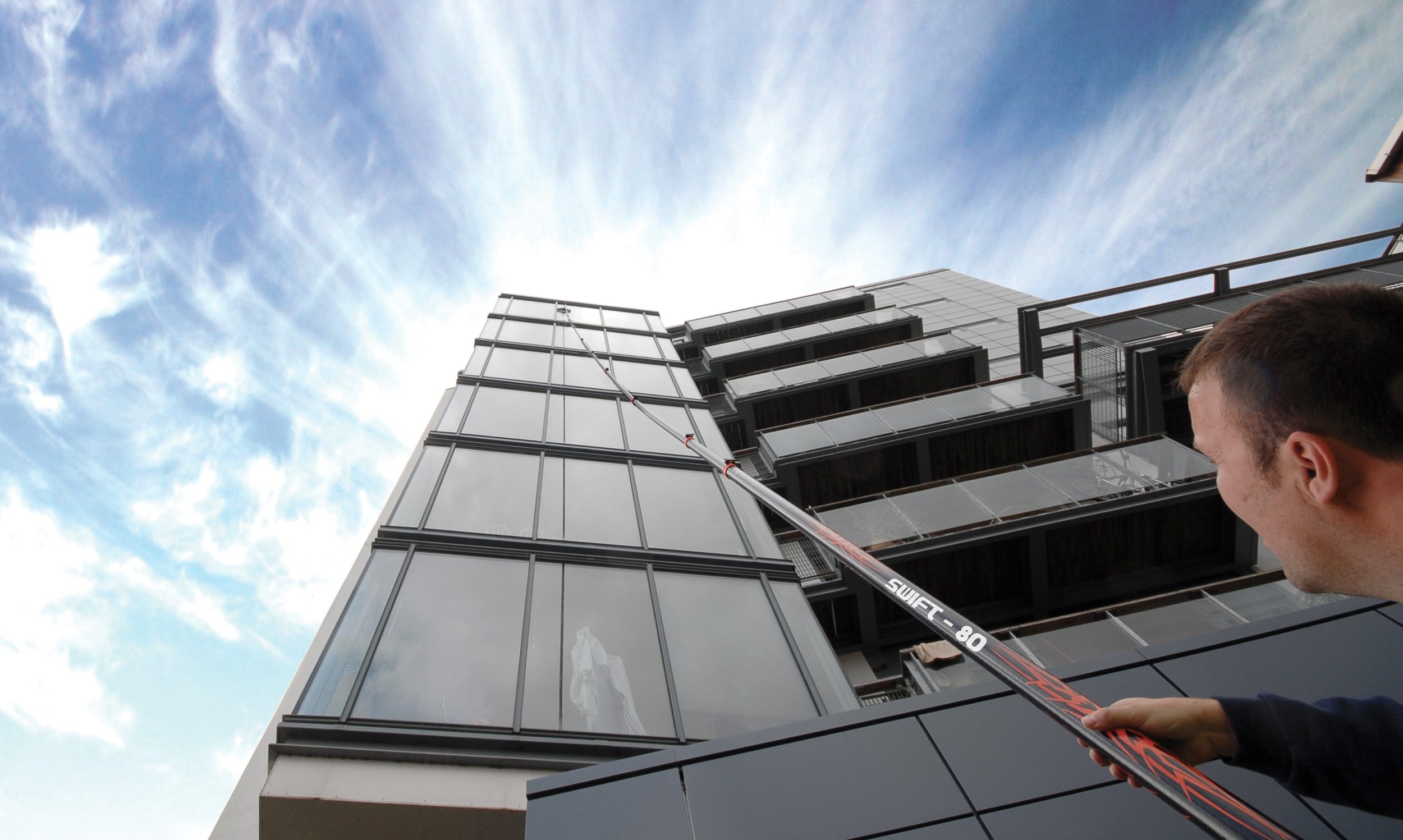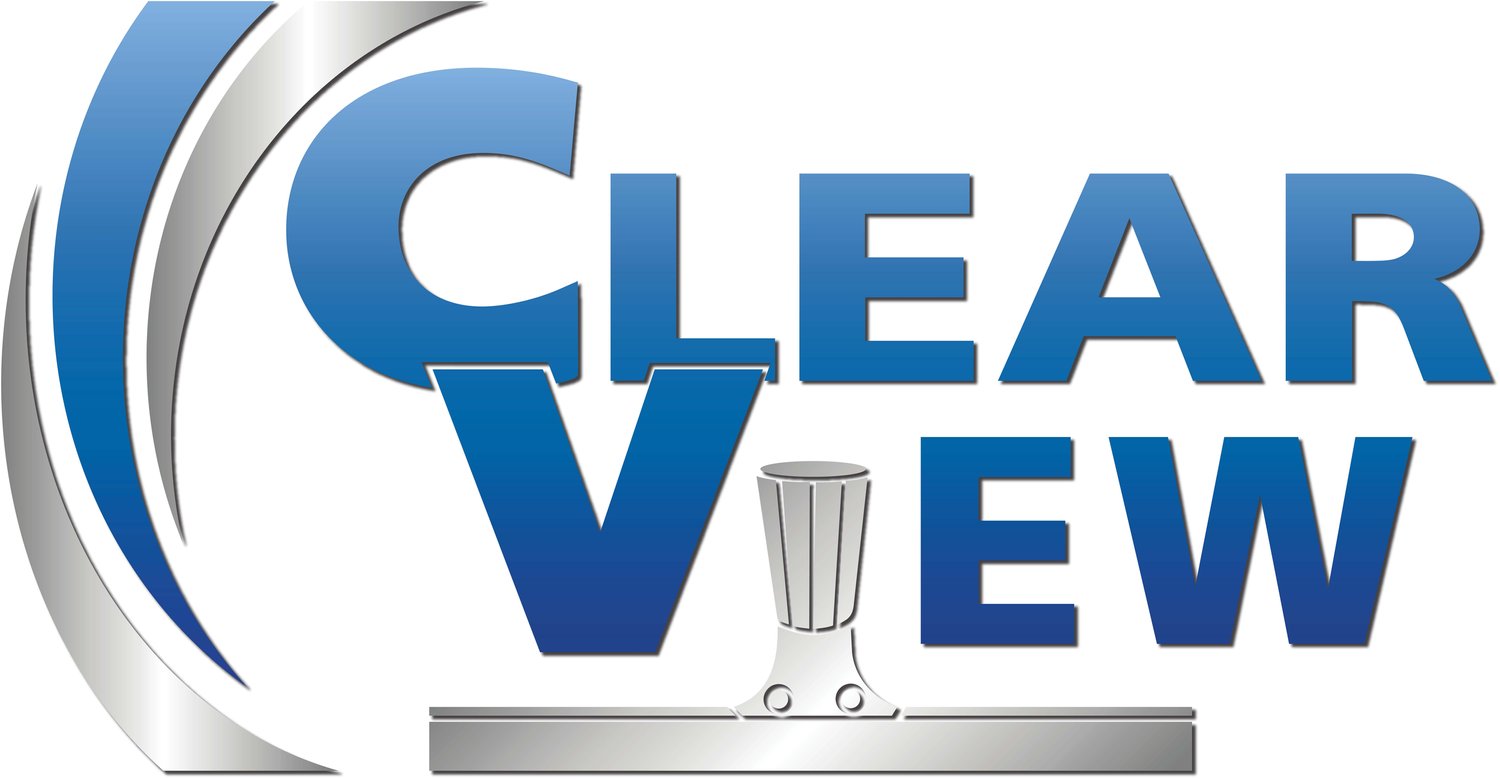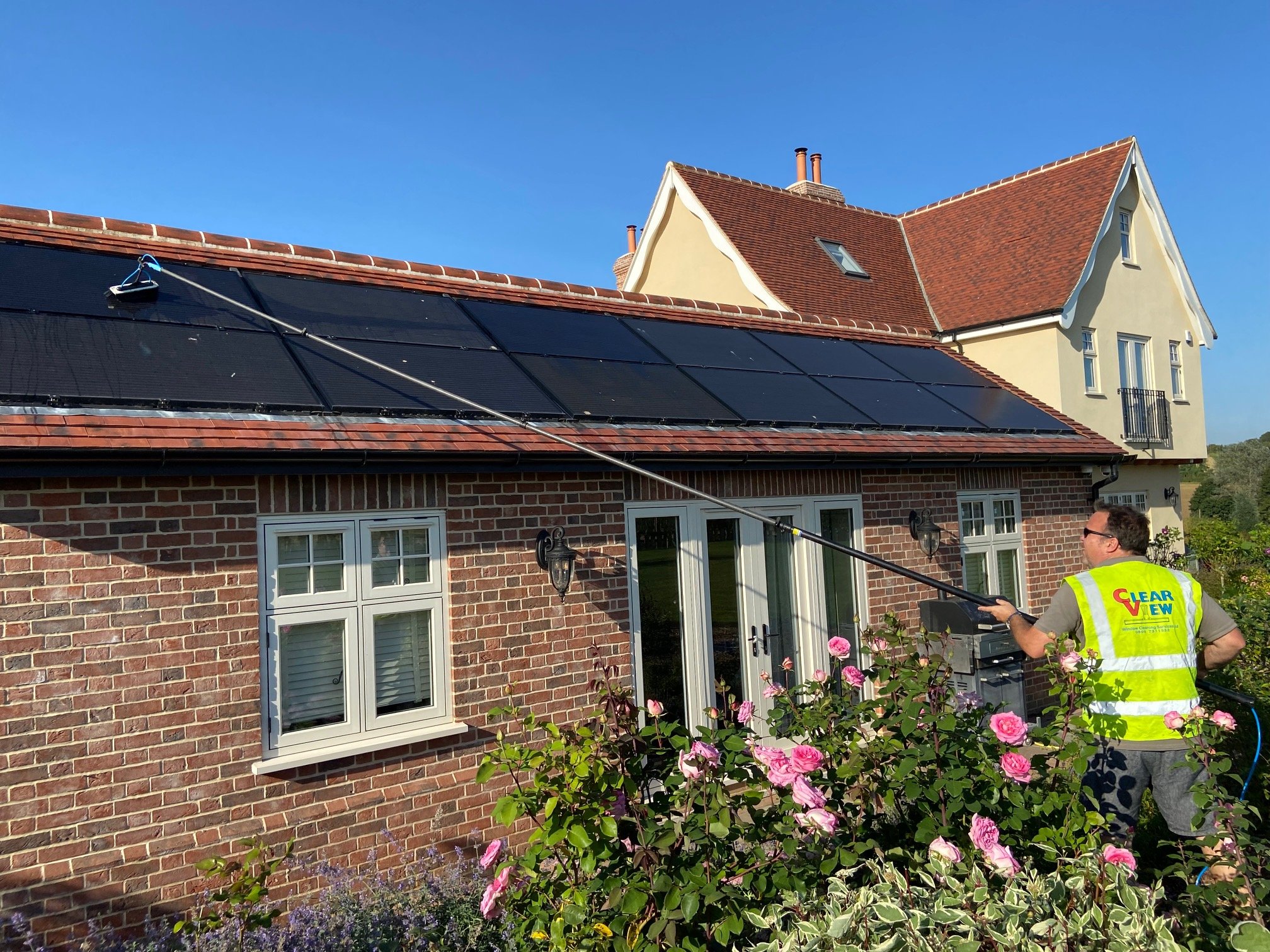
Reach and Wash Systems FAQ
Reach and Wash frequently asked questions.
We have tried to cover clients' most common topics and questions. However, if you have a question that is not answered on this page, or you require further information, please contact us, and we will be happy to discuss your query. Alternatively, click on the technical page.
How can using the Reach and Wash system save us money?
In the window cleaning industry, prices are inflated due to the associated risks of working at height. The greater the risk, the higher the price, as danger money is then applied. Also, the hiring of expensive cherry pickers and using abseiling techniques can inflate prices significantly. Because there is no risk and no high-access equipment required, we can pass on these savings to our clients.
How much money will the Reach and Wash system save us?
In terms of how much is a difficult one to answer as every job is different and has its own challenges and complexities. However, through experience and customer feedback, on average, we are saving our clients around 35-40% of their total window cleaning costs by using this system. This is in comparison with the more conventional methods used before, such as ladders etc.
Is it safe?
Yes. Because the operators work from the safety of the ground, and no ladders or other equipment are used.
Are the poles heavy, and how do you control them so high?
The poles are made from high-quality carbon fibre, which is a very light but extremely strong material. As it is so strong and durable, we can easily control the poles without too much friction or bend. When working on heights over 40 feet, we always work in pairs with one person checking the terrain.
What method do you use to clean the windows?
On top of the pole is a nylon brush head with a small channel that jets out a constant supply of pure water. First, we clean the frames and then the glass by moving the brush head (which is constantly wet) over them. We then rinse the windows and frames and leave them to dry to a spot-free finish.
How can pure water not leave any marks or droplets?
Unlike bottled water, rain or tap water contains mineral deposits, pollution, calcium and chemicals. Our water is stripped of every element and is pure in every sense. We do this by using a technique called reverse osmosis which is a filtration process carried out at our business premises and takes 10-12 hours to complete. The end result is 100% laboratory-graded pure water. Because of its purity, nothing can deposit on the windows, which usually results in spot-free windows.
How do you get a constant water supply, and where do you treat it?
Our water is treated on our premises using a 12-hour, 7-stage filtration process. When this process is completed, we transfer the water into our specially adapted vans which have 1500 litre holding tanks. We then transport this water on site, where it is pumped through the carbon fibre poles onto brush heads and ultimately onto the area to be cleaned.
Are any harsh chemicals used during this filtration process?
No. All filters contain natural elements such as salt, resin beads and carbon sediment and are environmentally safe. We also use a UV filter to kill harmful bacteria in the water to eliminate nasties such as Legionella’s disease.
Can the water damage or stain my property or building?
No. More damage is caused by pollution in the rain or atmosphere.
Do you give free demonstrations and quotations?
Yes. We regularly give free, no-obligation demonstrations and quotations. All demonstrations are carried out by our staff members, not sales representatives.
Do you supply and sell the Reach and Wash Pole cleaning system?
We don’t supply the Reach and Wash pole systems, but we are an approved distributor and can offer
Excellent rates to any person contacting us to purchase a system.
How do hosepipe bans and water restrictions affect using the pole system?
All our water comes from the Essex and Suffolk region, unaffected by water restrictions. We transport this water to the site using our holding tanks mounted on our vehicles.
Are there certain types of windows that are not ideal for the Reach and Wash system?
Yes, although the Reach and Wash system will clean the glazed surface optically perfectly, sometimes we face difficulties with certain window types, such as older-style aluminium windows. This is due to the oxidation (a little like copper and brass) on the framed surface caused by exposure to the elements. The pure water draws out the salts in the frames that react and can cause a slight haze effect on the window. However, after 2-3 cleans, this will get better, and proper rinsing can avoid the haze effect.
Apart from aluminium frames, are there other instances when the window will haze or spot?
Pure water does not dry to a haze or spot, so there has to be a reason for this. The most common reason is introducing a pole system to a building previously cleaned by conventional methods such as soap and water. The highly concentrated soap residue (usually fairy liquid), from previous cleans, leaves a film on the glass surface and builds up deposits in the actual frame itself. Once we flush this out and clean the window, it can leave a slight haze and the occasional spotting for the first 2-3 cleans. This will improve with each clean and will be noticeably better. Clearview will usually apply and use a pre-clean to the frames and windows before the initial visit to tackle this.
What are the benefits of using a Thermopure Hot Water System compared to a standard Reach and Wash pole cleaning system?
We always say the simple line of 'Would you wash your dishes in cold water', and the same concept applies to windows as hot water will always provide a better clean than cold systems, which is why Clearview only uses Thermopure systems on our vans. Thermopure Reach and Wash systems enable us to perminate the dirt off the window facade more effectively, and the results are outstanding.
Can the brush heads or the water-fed pole equipment scratch the glass?
The Reach and Wash system uses top-graded carbon fibre poles with specially designed brush heads using soft nylon bristles. The soft nylon bristles are designed to wash and remove dirt/grime on glass, panels or window frames without any abrasion or causing scratching. The housing of the brush heads is made of plastic and has no contact with the surface. The operator applies light pressure to move the brush head over the surface via an up-and-down motion. During the cleaning process, the brush heads are constantly fed clean, softened and heated water pumped from our specially equipped vans, which house an onboard filtration system. Due to our specialist cleaning equipment, no damage will occur to any glazed surface.
More images of the Reach & Wash systems in use at our client sites
Click on the above images to view in full screen











